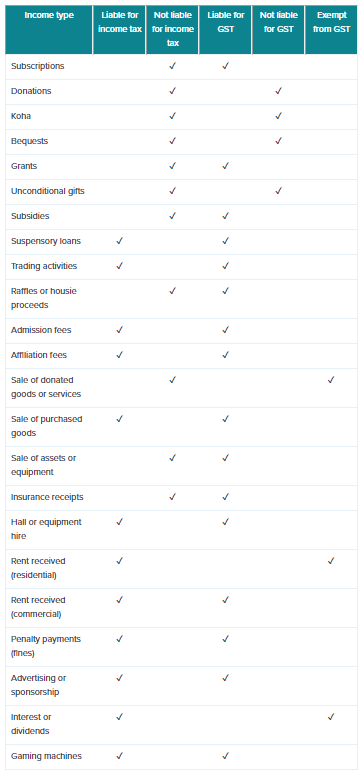Goods and Services Tax for Not-for-Profits
If you have ever bought something in New Zealand (or imported something into New Zealand) you will be well aware of Goods and Services Tax (GST) – the tax added to the price of most goods and services (there are a few exemptions). If you are a NFP and earn (or are expected to earn) more than $60,000 in twelve months, you must register for GST. If you earn less than $60,000 p.a. you have the option to register for GST. Being registered for GST means the organisation is required to add GST to their sales / income / prices and prepare and file regular GST returns.
Given the nature of the work that NFPs typically do, income (such as fundraising income, grants and donations) is put into categories (liable, not liable, exempt) with special GST rules applied to each category. For example, donations are not liable for GST i.e. donors do not add GST to their donation amount. Another example is interest earned on a positive bank balance – this is exempt from GST i.e. interest is a category that does not attract GST.
The table below provides an overview of income and whether it is liable for GST, not liable for GST or exempt from GST.
Preparing and filing GST returns
Organisations have the option of preparing and filing GST returns bi-monthly (every two months) or bi-annually (every six months).
A GST return calculates the difference between GST received on income and GST paid on expenses (also called input tax credits). It is important to note that even expenses incurred in generating exempt or non-liable income can be included in determining input tax credits. For example, you pay $100 for leaflets showing how to donate to your charity. Even though donations are not liable for GST, the GST on the cost of the leaflets can be included in input tax credits, reducing the amount of GST payable.
Key Contacts
Annika Dickey
Partner
Māori Business and
Not-for-Profit Advisor
D +64 9 407 7117 ext. 211
M +64 021 2407720
Paul Young
Partner




